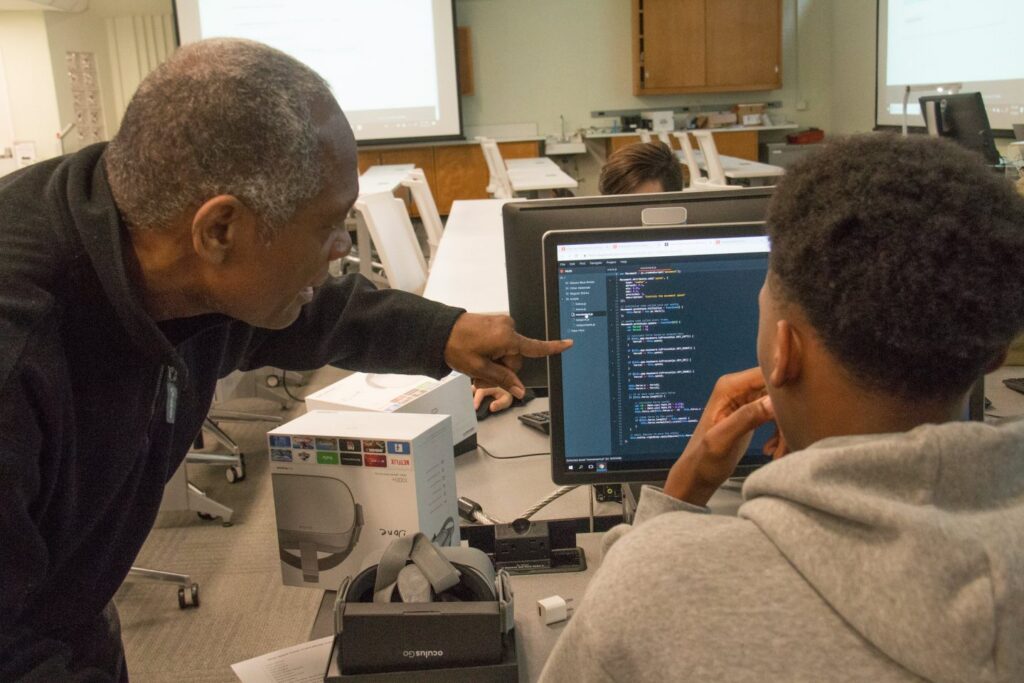Cultivating Equity in Education Through Equity-Mindedness
Recognizing that shaping one’s mindset is often the most effective means of creating and sustaining systemic change, we cultivate equitable educational outcomes by fostering equity-mindedness* across educational systems. Every learner deserves the opportunity to succeed. The Friday Institute is committed to removing systemic barriers for learners. We honor the voices and perspectives of those who teach, lead and learn in NC schools and beyond through public discourse and cross-stakeholder convenings.
*We define equity-mindedness as the mode of thinking exhibited by educational stakeholders who are willing to: 1) increase their understanding of the origins and causes of persistent and systemic barriers to student success, 2) critically assess their own biases, and 3) take responsibility for the success of all learners in order to increase equity in education.
North Carolina’s Digital Equity Plan

In 2018, the Friday Institute created the Students LEAD (Learn, Explore, & Advocate Differently) program. This was a first-of-its-kind online course to help students understand how they learn. As of fall 2020, the course was taken by over 10,000 educational leaders, and the student course was completed by over 1,450 students across the world. After participating in the Students LEAD program, students at Centennial Campus Magnet Middle School reported gains in their understanding of their learning differences and tools that support learning differences. By far, the largest reported change was the 27% increase of students who strongly agreed or agreed that they ask important adults for what they need to learn best.
The Literacy and Community Initiative
MSEN Program Brings STEM Experiences to Rural Students
